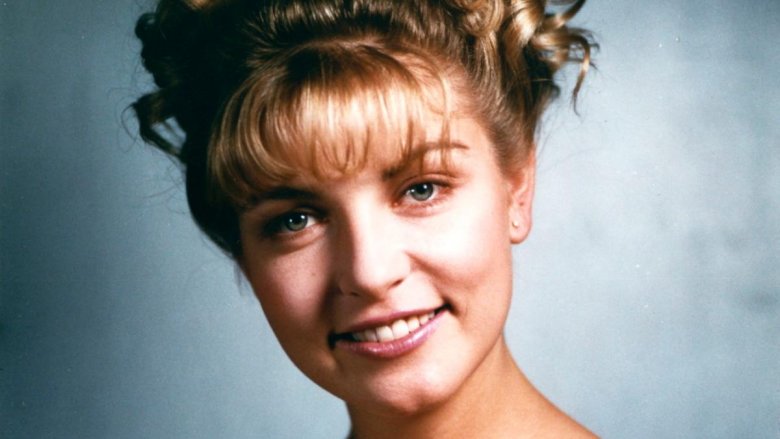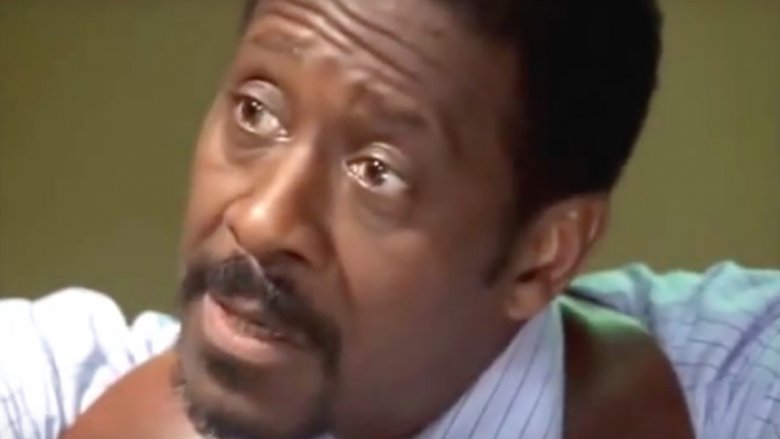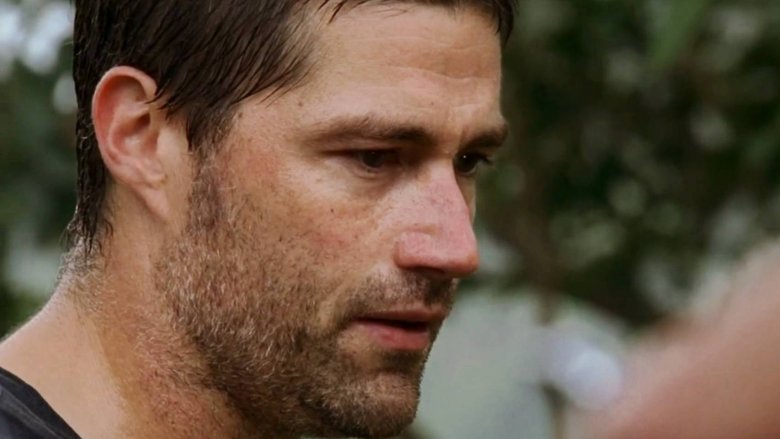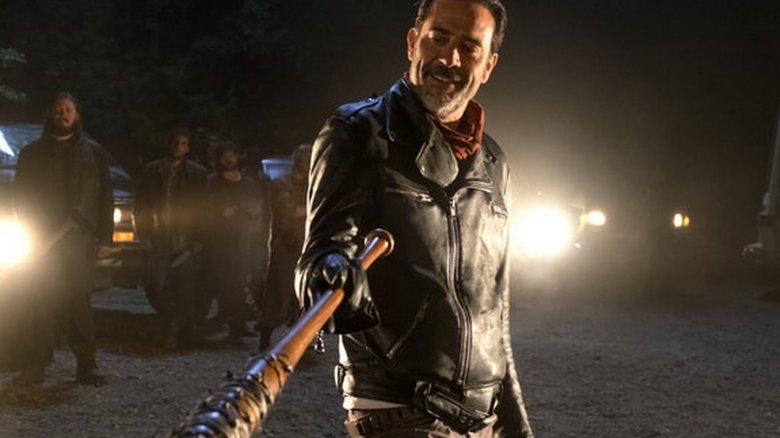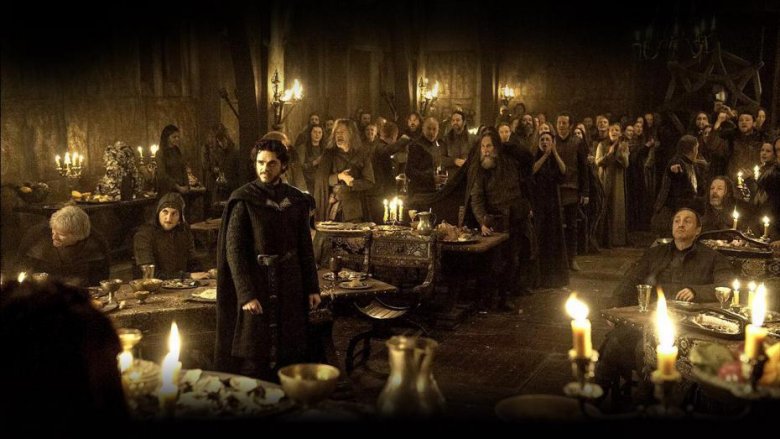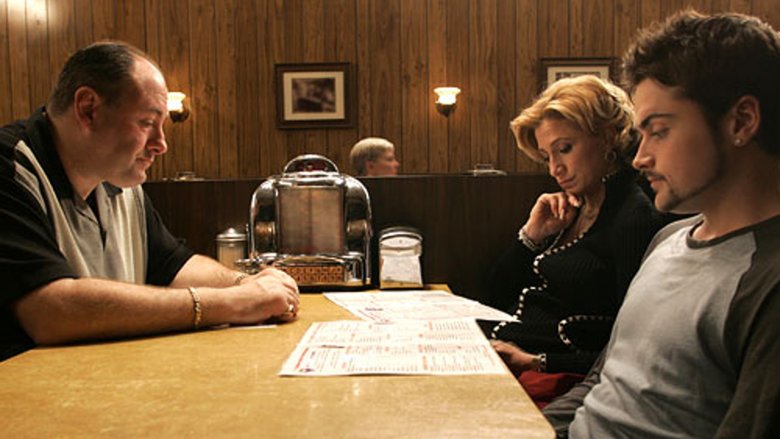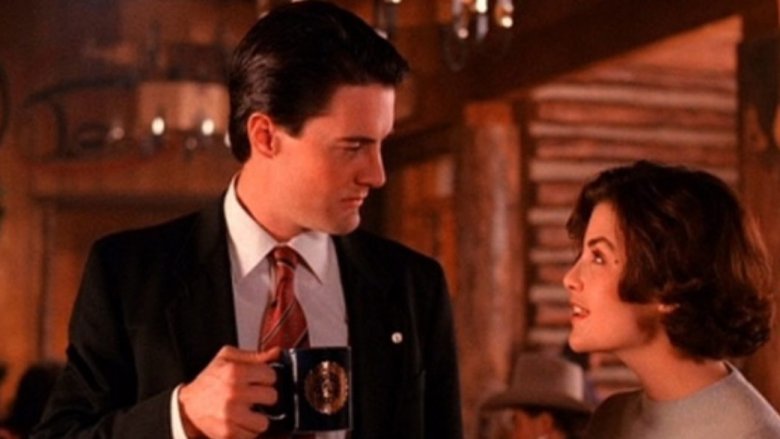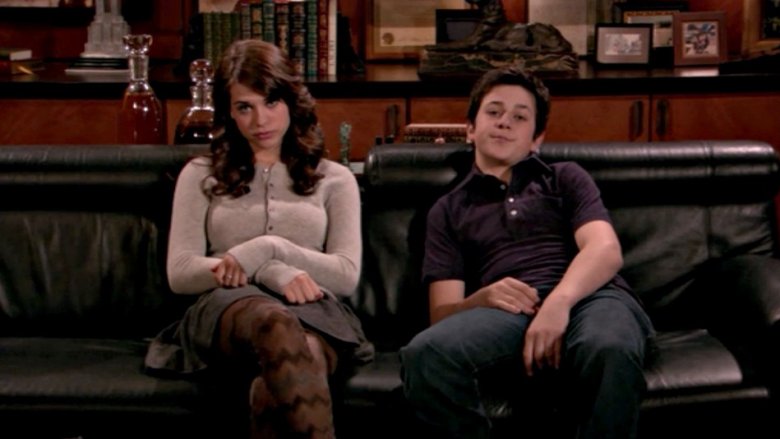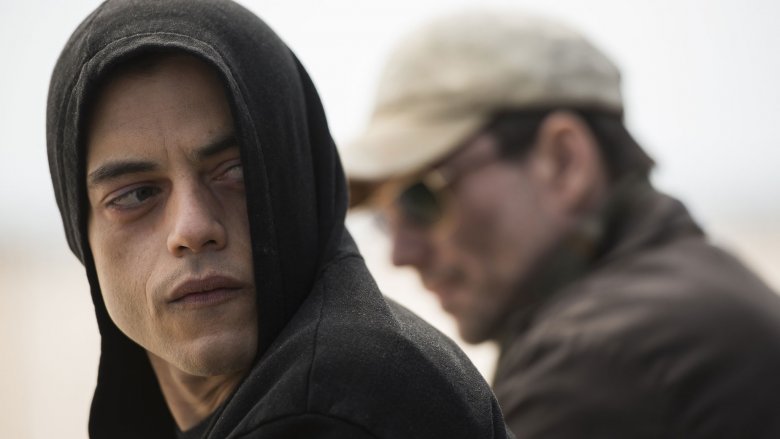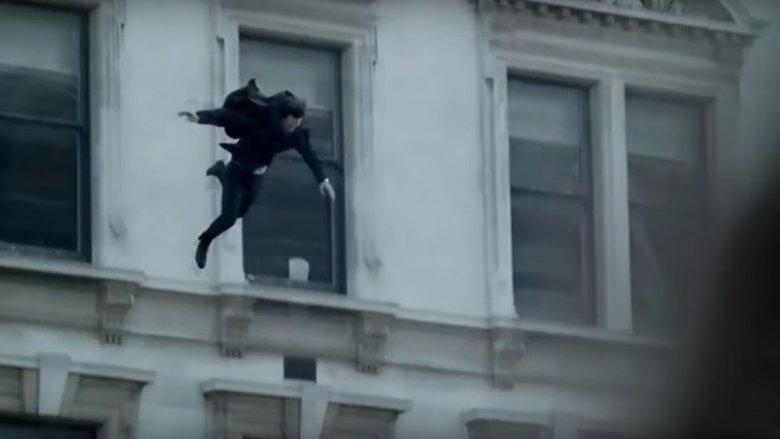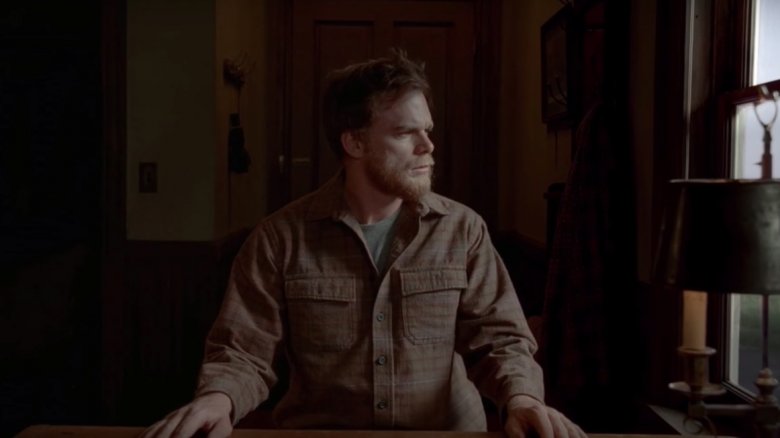Controversial TV Twists We're Still Talking About
Nothing gets an audience fired up like an incredible plot twist or cliffhanger. Sometimes those plot twists can be so divisive they lead fans to talk about them for years, even decades. Here are some of our favorite controversial television twists. Spoiler alert for the following!
Fake serial killer (The Wire)
The Wire, Ed Burns and David Simon's epic crime drama revolutionized television for a generation. The show was a game-changer, blending incredible acting, long-form storytelling, and the kind of gritty, true-to-life narrative that could only come straight from Simon and Burns' actual experience working in Baltimore. The show's continued focus on institutional traditions and the individual's place within them could become a bit abstract at times, but it was all anchored by gritty, realistic storytelling.
That's why fans were so taken aback when a major plot in season five involved Detectives McNulty and Lester faking a spate of serial killings in order to get the funding they felt they needed to pursue more cases. While it was consistent with the show's interest in individual desires running up against institutional bureaucracy, some fans felt that it fundamentally betrayed the characters to have them pursue such an idiotic idea. Lester, especially, had been shown to be cautious and methodical ("good police" in the show's parlance), so watching him go along with McNulty's McNutty plan was particularly baffling.
We have to go back (Lost)
Lost followed the survivors of a plane crash as they explored the deserted island they were trapped on, finding quasi-mystical threats, polar bears, and even a "smoke monster." It might be hard to understand if you weren't there, but the show was massive in its heyday. Star Wars and Star Trek director J.J. Abrams got a major career boost from working on it; it may have changed the narrative style of modern-day prestige television, and the series finale was so highly anticipated that it may have led President Obama to change the time of his final State of the Union speech.
Fan fervor hit a peak at the end of season 3 when Jack told Kate they "have to go back to the island" in what fans had thought was a flashback to their previous lives before the island. Instead, Jack's supposed flashbacks to an alcoholic, haggard past were actually flash-forwards to when he'd gotten off the island. The twist was momentous, upending the entire storytelling norm of the show. Fans no longer had a guarantee that they were watching flashbacks, encouraging fans to take nothing for granted. More than that, it showed that Lost wasn't going to content itself with an unending Gilligan's Island-esque purgatory of trying to escape the island for years and years.
Humans are angels (Battlestar Galactica)
The reboot of the cult classic television show of the same name, the 2004 iteration of Battlestar Galactica updated its source material with sleek production design, sharp writing, and an underlying structure that served as a vicious allegory for the Iraq war. The battle between a small band of surviving humans and the evil robotic race, called Cylons, kept viewers rapt for years, but the series finale delivered a twist that left fans scratching their head in confusion.
The finale revealed that the human protagonists were actually the ancient predecessors of modern mankind, visiting primitive ape-like Homo Erectus like angels to pass on their superior genes. While the series had always dabbled in religious allegory, the ending's explicit religiosity came as a shock. Even years later, it's hard to find any two fans who agree whether the ending was a bold twist on fan expectations or a half-baked ending that betrayed the core of the show.
Glenn and Abraham die (The Walking Dead)
AMC's horror-drama The Walking Dead is often summed up as "a zombie movie that never ends," for all the positives and negatives that brings. Still, while some may have complained about cyclical storytelling and repetitive conflicts, the sheer charisma of fan-favorites like Rick, Michonne, and Glenn continually keeps fans invested. For anyone wondering, after several seasons, if the show would meander forever in its cat and mouse zombie scenario, the original comic book source material laid out a trajectory the series generally follows, where one could read the many divergences TWD takes. The series, to its credit, diverges from that material just enough to keep comic fans surprised.
When newest big-bad Negan showed up in the season 6 finale to slowly pick a victim in the world's most deadly game of Eeny, Meeny, Miny, Moe, fans were incredibly concerned about which of their favorites he might kill. Instead of showing us who he chose, the show cut to the credits, promising to answer the morbid question of who died in the season 7 opener several months later.
Fans saw the sudden cliffhanger as a shoddy way to keep ratings up (in spite of the fact ratings remained strong, and it was the kind of cliffhanger TV is long known for), but even worse was the question of who Negan actually killed. In the comic books, it was Glenn, but the other favorite on the chopping block, Abraham, had been killed dozens of issues earlier by a stray arrow. Fans debated ceaselessly about which of the two would be killed or if it would be a swerve to a different character.
Negan, we learned in the season opener, killed Abraham and then killed Glenn in order to keep our heroes in line. Some fans felt cheated by the double-death surprise, while others were satisfied. Fans had heard for years from creators and producers that "no one is safe," but the season 7 premiere was the first time it had truly felt like that.
The Red Wedding (Game of Thrones)
Game of Thrones is known for being a particularly merciless show to its main characters; characters that would normally be the moral rock of a series such as this (like Sean Bean's sadly doomed Ned Stark) are summarily, and regularly, beaten and killed by the villainous wretches that populate the rest of Westeros, the fictional locale of the series. Yet, after three seasons, viewers still hadn't learned their lesson. This is exemplified by the time when King of the North, Robb Stark, and his blushing bride (carrying their unborn son) were horrifically murdered by the Lannisters in the middle of a celebratory wedding.
Fans' jaws dropped when possible savior after possible savior failed to halt the grisly, morbid ending. By the end of the scene, the only people screaming louder than Lyanna Stark were the viewers at home watching.
Don't stop believin' (The Sopranos)
What would this list be if we failed to mention the ending of The Sopranos? The show is arguably the genesis for the current wave of prestige television series following awful but charismatic men and the embittered relationships they have with their family. The show took victory laps around its contemporaries for years with Emmy award after Emmy award. James Gandolfini's lead performance as the complicated, murderous Tony Soprano is rightfully hailed as brilliant, and the strong control of series creator David Chase packaged the mob man's story into something that fans couldn't stop praising.
The finale, however, had a decidedly different reaction: Showing Tony at a diner table as Don't Stop Believin' plays from the jukebox, the series suddenly cuts to black with what viewers felt was a severe lack of clarity on whether he dies, lives, or ends up singing the "Don't Stop's" chorus (listen, that song doesn't get played in New Jersey without someone singing the chorus). Even years later, Chase refuses to explain the scene's significance, leading fans to argue whether it's the best finale ever made or the worst.
Who killed Laura Palmer (Twin Peaks)
What is there to say about Twin Peaks that hasn't been said already? A synthesis of David Lynch's surreal sensibilities with Mark Frost's seasoned plotting and characters, the show was (and continues to be) a genuine cultural icon. The only thing odder than the show's characters was how popular the show was in its original two-season heyday. Almost 35 million people watched the premiere, with all the backwards talking and dream communicating that the show would become known for. Part of the major appeal was the central mystery: in a small logging town in Washington, who killed beloved homecoming queen, Laura Palmer?
The answer to the question, as viewers would learn in season two (against co-creator David Lynch's wishes), was Laura's father, apparently possessed by a malevolent entity named Bob. Viewers were torn; dreamscapes and intuition were one thing, but real, demonic presences? Did it ruin the small-town vibe of Twin Peaks? Other fans hailed Lynch as a genius for taking a set dresser and turning him into one of the most terrifying villains fans had ever seen. Even the third season on Showtime didn't alleviate the back-and-forth of whether the reveal of Laura's killer was exceptional or just needed to be accepted.
The Mother doesn't matter (How I Met Your Mother)
How I Met Your Mother was a long-running sitcom about a dad relating a comically long story to his kids about how he and their mother met. The show had a surprisingly dense canon of jokes and an inordinately likable cast, including Jason Segel, Alyson Hannigan, Cobie Smulders, and Neil Patrick Harris. For years, the show had subverted viewers' expectations, putting up red herrings to tease viewers to whom "The Mother" would eventually be; it also got the main character into more romantic entanglements than an amorous basket of snakes. Even so, all the previous twists paled in comparison to the reveal in the series finale.
Apparently, The Mother had actually died six years prior to the story, and the reason main character Ted was telling his children an 11-year-long story was to basically ask their permission to get together with their "Aunt Robin" (Smulders).
After years of waiting to find out who The Mother was, the only thing more shocking was that it apparently didn't matter, since Ted's "true love" was the woman he'd met in the series pilot.
The Mr. Robot Fight Club (Mr. Robot)
Mr. Robot, a show about a mentally ill protagonist battling against consumerist society under the watchful gaze of a charismatic cult leader, drew immediate comparison to Fight Club. More than anything, it was perhaps the show's vaguely futurist society that kept fans watching. While hackers praised the show for its technical accuracy, the show's tech-nightmare plot kept fans guessing, which was why the reveal near the end of season 1 was so controversial.
It turns out that protagonist Elliot is Mr. Robot, disassociating from himself and simultaneously leader and lackey of a mysterious anti-capitalist terrorist group. It's a note-for-note match of the central twist of Fight Club, and fans argued back and forth about whether it was a worthy successor or just a shameless rip-off.
The Reichenbach fake-out (Sherlock)
Sherlock, the modern-day reimagining of fiction's most famous detective was a massive hit for BBC and catapulted the careers of stars Benedict Cumberbatch and Martin Freeman. Through it, fans were enamored by the twists on classic Holmes stories, the easy chemistry between Watson and Sherlock, and the overarching mystery of what villainous Moriarty (played to twitchy perfection by Andrew Scott) was planning.
In the end of season 2, fans got their answer as Moriarty trapped Sherlock in a situation where he had to either jump off a building, killing himself, or watch Watson die. Sherlock jumps, and it seems like he actually dies just as Moriarty had wanted. However, right before the credits roll, Sherlock watches Watson visiting his "grave," revealing that he's faked his death after all!
Fans waited years to find out how Sherlock had done it, but the answer was never actually revealed. Instead, in the season 3 premiere, Sherlock mocks a group of dedicated investigators (fans of Sherlock, you might say) for being so invested in how he managed to fake his death. It's as close as any show has ever come to just mocking their fans for being invested and left a bad taste in many fans' mouths.
Dexter the lumberjack (Dexter)
Dexter was a no-brainer of a concept, combining two incredibly popular ideas—cop show and serial killer show—into a serial killer cop show. Following the eponymous Dexter as he sublimates his murderous urges toward killing serial killers, the show was an addictive guilty pleasure even when it strained against credibility. Seriously, how many serial killers can there really be in Miami?
The series finale, in which Dexter is forced to kill his sister Debra after surgery leaves her brain dead, left fans scratching their heads. Instead of dying tragically, or even finding justice at the hands of the police, Dexter fakes his own death and becomes a lumberjack. Whether you thought Dexter deserved to find happiness or go to prison for years, a self-imposed exile to the logging industry was a compromise that served no one.
The dream season (Dallas)
Soap Operas have a reputation for putting characters in comas and faking deaths, but Dallas was on a whole different scale. The show was famous for its cliffhangers, so shocking that they dared viewers to stop watching. Still, while some were great ("Who Shot J.R.?") and some were not (was J.R. sad by his wife's miscarriage?), few were as controversial as Bobby Ewing's dream-death.
In the season 8 finale, Bobby Ewing, the moral heart of the show, is struck by a car and dies in the hospital. Season 9 deals with the fallout of his death, eventually ending in a giant explosion that's seems to have killed several other characters. Except, moments after that, Pam, Bobby's wife, wakes up and find Bobby in the shower, implying that she had dreamed the entirety of season 9, and that Bobby and every other character killed in what would be called "The Dream Season" are completely fine.
Tommy-Westphall Universe (St. Elsewhere
This is going to be a bit of a doozy, since it goes into a larger shared universe controversy that ultimately results in literally hundreds of shows becoming a fictional construct. To start, St. Elsewhere was a hospital drama with some black humor, basically a combination between M*A*S*H and ER.
In the course of its run, it crossed over with other shows, including Cheers and Homicide: Life on the Street. At the end of St. Elsewhere, there's a tight zoom on an autistic child playing with a snow globe that eventually coalesces into the exterior of the hospital that viewers had been seeing for years, implying that the entire show took place within the child's mind.
Fans took this to mean that not only was St. Elsewhere a product of the child's imagination, but so were all the other shows it crossed over with, including references in other live-action serial dramas like X-Files, Oz, and even Firefly. It's all painstakingly collected in the official site for the "Tommy Westphall Universe," named after the child seen playing with the snow globe. There might be other twists as controversial, but not many can profess to rendering 90% of all television a fiction within a fiction.
